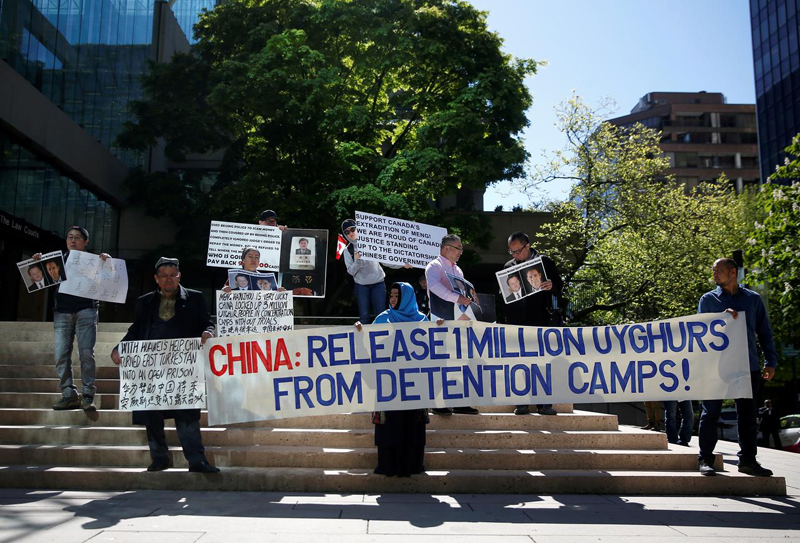
(TibetanReview.net, Jul11’19) – A group of 22 countries has issued a statement at the United Nations in Geneva, urging China to stop the mass incarceration of ethnic Uighurs and other Muslims in the Xinjiang region under its rule. None of the traditionally Islamic countries that claim to defend the rights of Muslims is a part of this first concerted international challenge to a policy China vigorously defends at the United Nations. Angry China was reported to be preparing its retort on the issue.
In a letter submitted to the United Nations High Commissioner for Human Rights, Ms Michelle Bachelet, the group has called on China to uphold its own laws and international obligations, and stop arbitrary incarceration of Uighurs and other Muslim and minority communities, and permit freedom of religion. The letter was delivered Jul 8 and publicly seen on Jul 10, reported nytimes.com Jul 10.
The report said Britain, France and Germany were among 18 European countries that – joined by Japan, Australia, Canada and New Zealand – drew attention to reports of large-scale arbitrary detentions and asked Ms Bachelet to keep the UN Human Rights Council regularly updated on developments. The United States, which quit the 47-member state forum a year ago, was not among them.
The report noted that China experts, drawing on official Chinese documents, satellite imagery and the testimony of families whose relatives had been detained, estimated that China had detained a million or more people in re-education centres and had imposed intrusive surveillance.
China denies the existence of the concentration camps, insisting that there were only voluntarily enrolled vocational training centres meant to insulate Xinjiang’s population from what it describes as the global scourge of extremism.
Paradoxically, China draws strong support for its stance from Muslim countries. While some have remained silent others have, in fact, praised China’s treatment of its Muslims. Cameroon, a beneficiary of Chinese infrastructure spending, devoted a statement in the council last week to praising China’s “big achievement” in Xinjiang, the report noted.
The letter fell short of a formal statement being read out at the Council or a resolution submitted for a vote, as sought by activists. And the report cited diplomats as saying there was little prospect of another country leading a resolution in the council and exposing itself to the political and economic retaliation China often threatens against states that criticize it, especially in prominent forums.
The joint letter had no obvious coordinator or sponsor, making it difficult for China to single out a particular signer for retribution. The report cited diplomats as saying the letter provided a less risky but nonetheless effective way for states to express indignation over China’s measures in Xinjiang.
China’s delegation at the council was “hopping mad” at the move and was preparing its own letter, aljazeera.com Jul 10 cited an unnamed diplomat as saying.
At the start of the three-week session in Geneva, which ends on Jul 12, the Xinjiang vice governor responded to the international condemnation of the state-run detention camps by saying that they were vocational centres which had helped “save” people from “extremist” influences, the report noted.
Human rights groups are encouraged by the latest development.
“Governments are increasingly recognizing the suffering of millions of people in Xinjiang, with families torn apart and living in fear, and a Chinese state that believes it can commit mass violations uncontested,” the nytimes.com report quoted John Fisher, director of Human Rights Watch’s Geneva office, as saying in a statement.
Chinese diplomats in Geneva have expressed the wish to have the high commissioner visit Xinjiang but in their discussions with Ms Bachelet’s office have yet to agree on the terms, the report noted. Bachelet is a former president of Chile.





